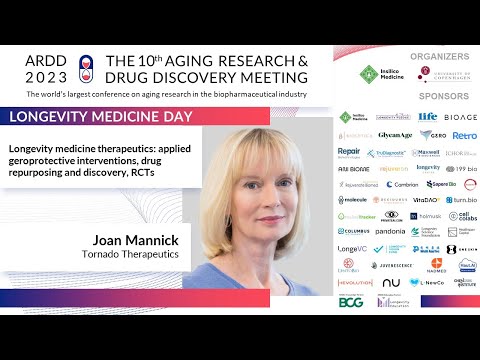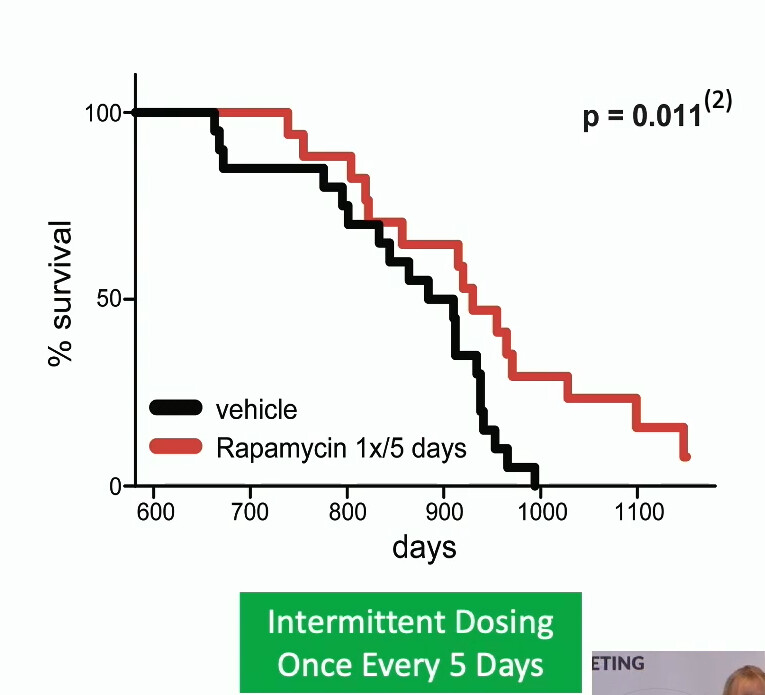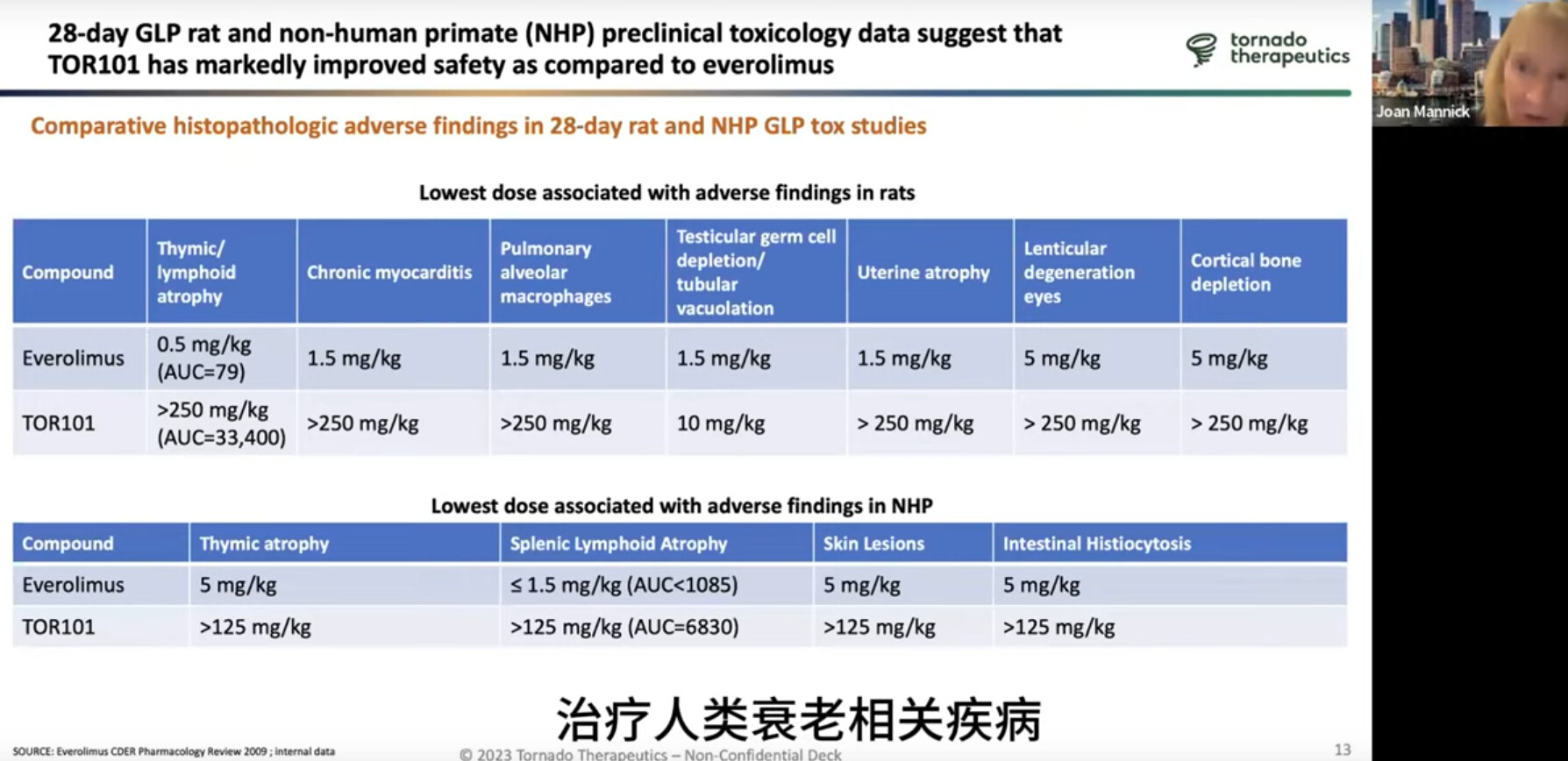Thanks for posting. I love the slide that compares mTOR regulation of young vs. old when fasting! To replicate this regulation would require shorter half life rapalogs possibly taken at night during fasting phases.
This seems to show that intermittent dosing of rapamycin in mice improves lifespan.
Very good presentation. Hopefully the drug TOR101 will be affordable with a large supply if successful. Increase in cholesterol still a downside with these potential superior rapalogs. Hence it is not automatically the case that mTOR inhibitors will improve healthspan. It probably requires a cholesterol lowering drug on the side.
This and the info about mTORC-1 selective inhibitors is fascinating. Thanks.
My view and comment;
If the product makes it to “Market”
The reality is most people will not have the re$ource$ to purchase{you think insurance will pick up the co$t?] as it will not be $100 per month.
More like several thousands per month.
And will be no real difference in “extending” lifespan, the difference will be the co$t.
TOR-101, which inhibits mTORC1 and not mTORC2, has a much greater safety profile in mice and non-human primates, that’s important for a longevity drug not used for disease treatment.
Nov 18, 2024.
Yes, the preclinical data looks good, but still many years from us having good clinical data. I hope the trend continues.
Any estimates about when we will get some clinical data on TOR101?
Im unclear on the phase 1 timeline.
Sadly, Tornado Therapeutics was a casualty of the biotech funding freeze… they ran out of funding (from what I’ve heard) and had to shut down. Joan Mannick, the founder, has gone to Altos Labs. I hope she’s working on mTOR inhibitors there.



